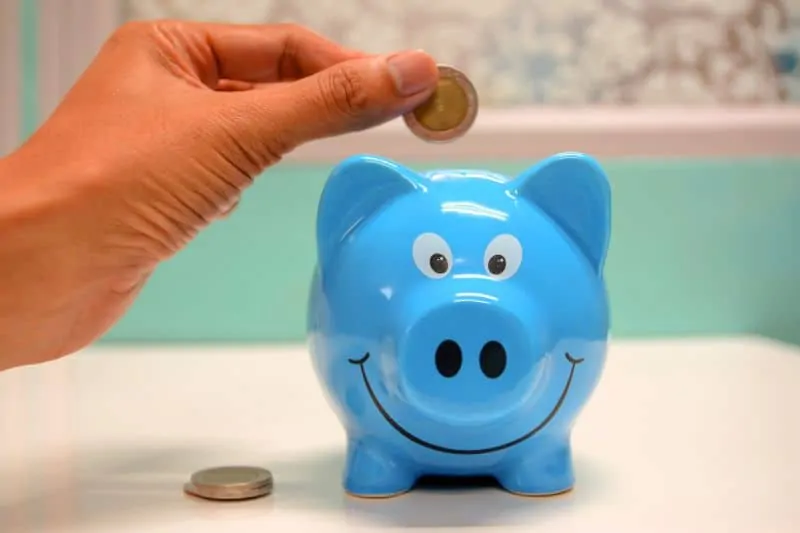Last Updated on 8 months by Christopher Jan Benitez
Freelancing or the gig economy is becoming increasingly popular among creatives due to flexible work hours and remote working. However, it is not uncommon for freelancers to shy away from finances and related matters completely neglecting this very important aspect of their work.
Freelancing is a business and you should treat it as such.
But while larger businesses have accountants or even entire accounting departments to take care of their finances, there is no one else in your business but you. You may not have accounting skills and you may dread dealing with numbers, but as a self-employed individual, you are the one who must take care of your financial matters such as taxes, savings, etc. It’s time to overcome the fear and take control of your finances.
To help you overcome this hurdle, here are 6 personal finance tips and tricks every freelancer should know.
Start Planning for Income Fluctuations
Freelancing is exciting because there is a lot of freedom to it. You can work as much or as little as you want. However, it is also unpredictable. Whether you’re a freelance writer, designer, or any other type of artist, you have undoubtedly experienced some highly lucrative months where you earn more money than you can spend, as well as some surprisingly slow months.
Your earnings fluctuate throughout the year. This is exactly why you need to start planning for these slow times as they surely will come.
Start saving money in a separate account so that when a slow month or few months come, you’re able to support yourself without any financial hurdles.
Start by calculating how much on average you earn each month. This is simpler than it seems, just divide your yearly earnings by 12. Aim to have at least 3-months worth of expenses saved (your average monthly income).
Create a Budget
Creating a budget and sticking to it is much harder when you’re a freelancer since you don’t have a fixed amount coming in every month. But precisely because of the fact that you don’t have a steady income and you deal with uncertainties all year long, you need to pay attention to your fixed monthly spendings and try to work out a budget.
It may seem scary because you don’t know how much money is coming in each month, but once you calculate your average monthly earnings, consider that amount as your basis for creating a budget.
To put it simply, consider your average monthly income as your fixed paycheck. Next, calculate how much you spend each month on things like rent, electricity, clothes, food, entertainment, buying gifts for friends, etc. Come up with a monthly budget for your necessities and your lifestyle.
There are many benefits of budgeting and knowing where your money goes. It may be stressful in the beginning but once you get used to it, you’ll never return to the old ways. There is a variety of budgeting apps (many of them are free) to help you with budgeting. It’s easier than doing things manually.
Pay Your Taxes on Time
Don’t forget that as a self-employed individual, you’re also in charge of handling your taxes. Unlike full-time employees whose taxes are taken right out of their paycheck, you need to plan this and set funds aside for tax purposes every time you get paid.
The best way is to find out what the tax rate in your country is and set aside that amount (or approximately 20% of each payment you receive). You can do this manually or use an automated monthly deposit.
Preparing for the tax season in this way is a preventative measure so that you don’t end up surprised or in financial difficulties. This is especially important due to the fact freelancers earn inconsistent income. When the time comes to pay your taxes, you may even get a decent refund!
Keep a Financial Record
Tracking your income and expenses is not most freelancers’ favorite hobby but it is necessary. Many of us take a casual approach to our finances and spend our income without giving it too much thought. However, if you keep a record of what you earn and what you spend, it will save you a lot of time in case you’re ever audited.
You can use a spreadsheet for this or you can download one of the many apps designed for this purpose.
Set Up a Retirement Savings Account

Retirement may seem far away if you’re in your twenties but time flies, as they say. Before you know it, you’re in your 50s or 60s. Retirement planning should be your priority. Set up a retirement account and calculate how much you can afford to deposit each month. You can start by calculating an average retirement income you’d like to have (about the same amount you spend now every year).
According to personal finance experts, you should set a yearly goal and try to stick to it. Having a retirement account may mean that you need to take a few extra projects every month or write a few extra articles every week, or you can cut your spending to fund your retirement goals.
Pro tip: stagflation is already upon us and experts predict a new recession is coming, and one that will put the 2008 recession to shame.
Because of this, you might want to consider keeping some of your retirement funds in gold and silver. These precious metals have never been worth $0 and their value usually grows when the world’s economy is crumbling. There are plenty of legitimate gold IRA companies on the market, with Augusta Precious Metals being one of the best and most affordable.
Prepare for Unexpected Expenses
When emergencies occur, many freelancers find themselves in a financial pickle since they are often forced to use their retirement savings to cover a sudden medical bill or fix their broken car, or they borrow money from family members. A single medical scare can leave you bankrupt if you’re not prepared.
This is what emergency funds are for. Anticipating unexpected expenses and setting a small amount aside to be used in emergencies only.
This gives you peace of mind knowing that you will be able to cover an emergency bill without jeopardizing your financial health.
Bottom Line
If you apply these personal finance tips and tricks, the gig economy doesn’t have to be scary at all. Being smart about your finances will protect you from income fluctuations and give you control of your money, even though it may be inconsistent. Most importantly, it will enable you to truly enjoy the freedom that freelancing has to offer.

